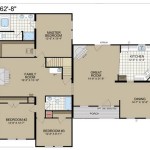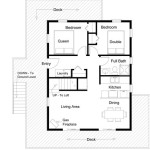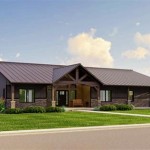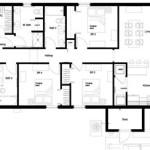Non-Medical Home Care Business Plan: A Comprehensive Guide
A non-medical home care business plan serves as a crucial roadmap for entrepreneurs aiming to establish and operate a successful agency providing supportive services to individuals in their homes. This document outlines the business's objectives, strategies, and operational framework, providing a clear path to profitability and sustainability. A well-structured business plan not only guides internal decision-making but also attracts potential investors and secures funding.
The non-medical home care industry is experiencing significant growth driven by an aging population, increasing preference for in-home care, and advancements in technology that facilitate remote monitoring and communication. Consequently, the demand for reliable and compassionate caregivers is on the rise, presenting a promising opportunity for entrepreneurs who can deliver high-quality services and effectively manage their businesses.
Creating a comprehensive business plan is a multifaceted process involving market research, financial projections, and strategic planning. This document should clearly articulate the business's mission, vision, and values, as well as the specific services it intends to offer. A detailed analysis of the target market, competitive landscape, and regulatory environment is also essential. Furthermore, the business plan should outline the organizational structure, staffing requirements, marketing strategies, and financial projections necessary to achieve long-term success.
Key Elements of a Non-Medical Home Care Business Plan
Several key elements are essential for a comprehensive and effective non-medical home care business plan. These elements provide a framework for understanding the business's goals, operations, and financial sustainability.
Executive Summary: This section provides a concise overview of the entire business plan, highlighting the key objectives, strategies, and financial projections. It serves as a snapshot of the business, capturing the reader's attention and encouraging them to delve deeper into the details.
The executive summary should include a brief description of the company, its mission statement, target market, services offered, competitive advantages, and financial highlights. It should also address any significant challenges or risks associated with the business and the strategies in place to mitigate them. A well-written executive summary should be compelling and informative, providing a clear understanding of the business's potential for success.
Company Description: This section provides a detailed overview of the business, including its legal structure, ownership, and history. It should also articulate the company's mission, vision, and values, providing a clear understanding of its core principles and goals.
The company description should outline the specific services offered, such as companionship, personal care, homemaking, and respite care. It should also describe the target market, identifying the demographics, needs, and preferences of the clients the business intends to serve. Furthermore, this section should highlight the company's competitive advantages, such as specialized expertise, exceptional customer service, or innovative technology.
Market Analysis: This section provides a thorough analysis of the non-medical home care market, including its size, growth trends, and key demographics. It should also identify the target market and analyze their specific needs and preferences. A comprehensive market analysis is essential for understanding the competitive landscape and identifying opportunities for growth.
The market analysis should include data on the aging population, the prevalence of chronic conditions, and the increasing demand for in-home care services. It should also identify the major competitors in the area, analyzing their strengths, weaknesses, and market share. Furthermore, this section should assess the regulatory environment, including licensing requirements, quality standards, and reimbursement policies.
Operational Planning for a Home Care Agency
Operational planning is a critical component of a non-medical home care business plan, outlining the day-to-day activities and processes necessary to deliver high-quality services to clients. This section addresses staffing, training, scheduling, quality assurance, and technology implementation.
Staffing and Training: Recruiting, hiring, and training qualified caregivers is essential for providing exceptional service. The business plan should outline the staffing model, including the number of caregivers needed, their qualifications, and their compensation. It should also describe the training programs that will be offered to ensure that caregivers are equipped with the necessary skills and knowledge.
Training programs should cover topics such as personal care, safety procedures, infection control, and communication skills. Ongoing training and professional development opportunities should also be provided to ensure that caregivers stay up-to-date on the latest best practices. A robust training program not only enhances the quality of care but also improves caregiver retention and satisfaction.
Scheduling and Coordination: Efficient scheduling and coordination are essential for ensuring that clients receive the care they need when they need it. The business plan should outline the scheduling process, including how client needs are assessed, how caregivers are matched with clients, and how schedules are managed and adjusted. Technology solutions, such as scheduling software and mobile apps, can streamline the scheduling process and improve communication between caregivers, clients, and the office staff.
Effective scheduling also involves considering caregiver availability, client preferences, and travel time. Contingency plans should be in place to address unexpected absences or emergencies. Regular communication with clients and caregivers is essential to ensure that schedules are accurate and responsive to changing needs.
Quality Assurance: Maintaining a high standard of care is essential for building a positive reputation and attracting new clients. The business plan should outline the quality assurance program, including the procedures for monitoring caregiver performance, gathering client feedback, and addressing complaints. Regular audits and inspections should be conducted to ensure compliance with quality standards and regulatory requirements.
Quality assurance should also involve implementing policies and procedures to prevent errors and ensure client safety. Continuous improvement is essential for maintaining a high level of quality and adapting to changing client needs and industry best practices. Client satisfaction surveys, caregiver performance evaluations, and incident reports can provide valuable insights for identifying areas for improvement.
Financial Projections and Funding Strategies
Financial projections are a critical component of a non-medical home care business plan, providing a realistic assessment of the business's potential for profitability and sustainability. This section outlines the key financial assumptions, revenue projections, expense budgets, and funding strategies.
Revenue Projections: Revenue projections should be based on realistic assumptions about the number of clients served, the services provided, and the rates charged. The business plan should include a detailed breakdown of revenue sources, such as private pay, long-term care insurance, and government programs. Market research and competitive analysis can provide valuable insights for developing realistic revenue projections.
Revenue projections should also consider seasonal fluctuations in demand and potential changes in reimbursement rates. It is important to develop multiple scenarios, including best-case, worst-case, and most-likely cases, to assess the business's financial resilience. Regular monitoring and analysis of revenue performance are essential for identifying trends and making informed decisions.
Expense Budgets: Expense budgets should include all anticipated costs associated with operating the business, such as caregiver wages, office rent, insurance, marketing expenses, and administrative costs. The business plan should provide a detailed breakdown of each expense category, including fixed costs and variable costs. Careful expense management is essential for maintaining profitability and ensuring the long-term financial health of the business.
Expense budgets should also include contingency funds to address unexpected costs or emergencies. Regular monitoring and analysis of expenses are essential for identifying opportunities to reduce costs and improve efficiency. Negotiating favorable rates with vendors and implementing cost-saving measures can help to maximize profitability.
Funding Strategies: Securing adequate funding is essential for launching and scaling a non-medical home care business. The business plan should outline the funding sources that will be used, such as personal savings, loans, grants, and investors. It should also describe the terms and conditions of any loans or investments, including interest rates, repayment schedules, and equity stakes.
Developing a strong financial plan and demonstrating a clear understanding of the business's financial needs will increase the likelihood of securing funding. Investors and lenders will want to see a detailed business plan with realistic financial projections and a well-defined strategy for achieving profitability. Regularly reviewing and updating the financial plan is essential to ensure that it remains accurate and responsive to changing market conditions.
In conclusion, a comprehensive non-medical home care business plan is an indispensable tool for entrepreneurs seeking to establish and operate a successful agency. By carefully addressing the key elements outlined above, entrepreneurs can create a clear roadmap for achieving their business goals and delivering high-quality services to clients in need.

One Page Business Plan For Non Medical Home Care Services Presentation Report Infographic Ppt Document Sample

Non Medical Home Care Business Plan Mastery Your Key To Success Free Template

Einseitige Geschäftsplanung Für Nicht Medizinische Hauspflegedienste Präsentationsbericht Infografik Ppt Dokument

Business Plan For Non Medical Home Care Paperback Pass Books

Non Medical Home Care Business Plan Template Updated 2024

Non Medical Home Care Business Plan Mastery Your Key To Success Free Template

Craft A Winning Healthcare Clinic Business Plan In 9 Simple Steps

Ppt Non Medical Home Care Business Plan Powerpoint Presentation Free Id 12668020

Medical Care Services Powerpoint Presentation And Slides Ppt Template Slideteam

Non Medical Home Care Business Plan Sample Template Profitableventure








